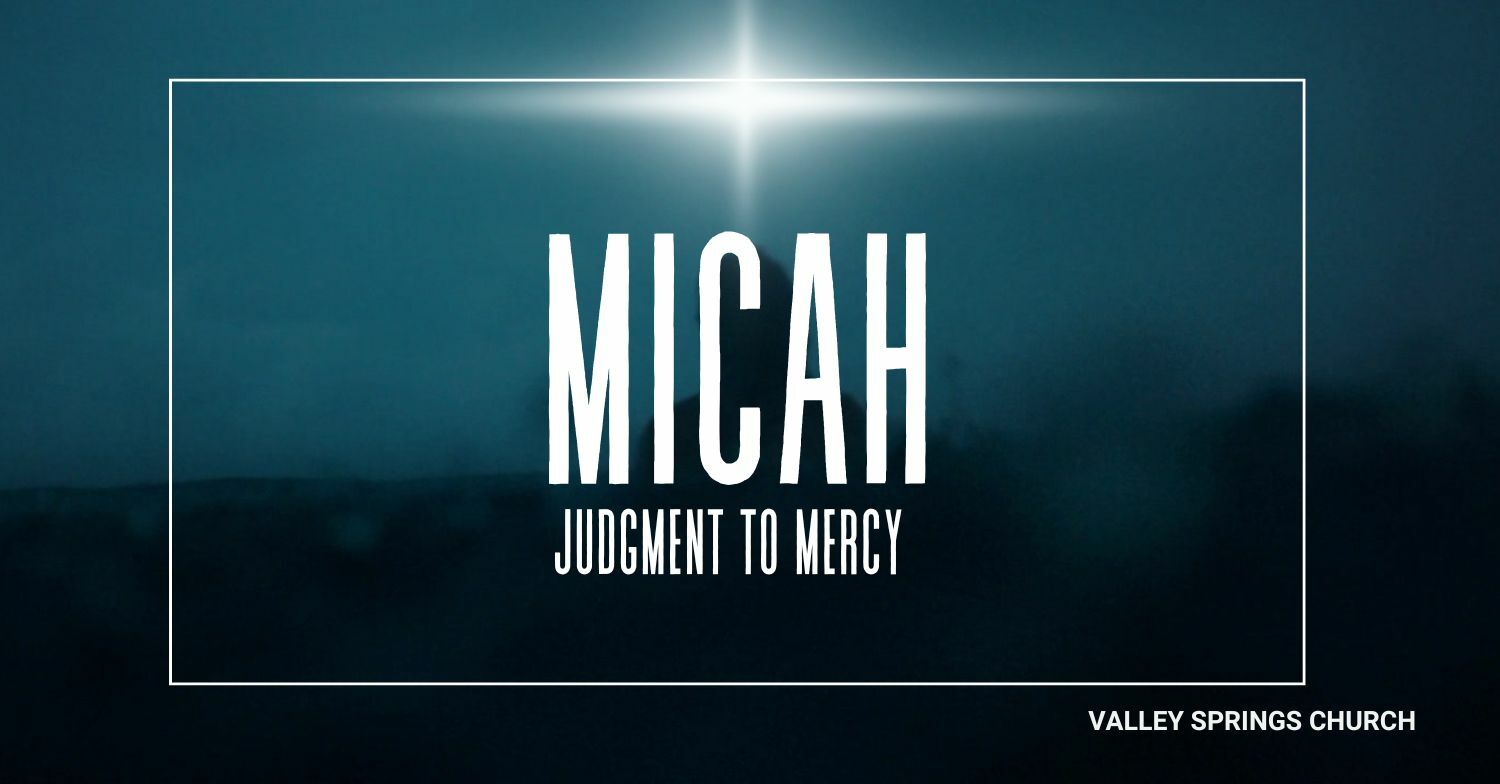
From Judgment to Mercy: Walking Humbly with God
Micah 1-7
Micah opens with a dramatic picture of the Lord coming down from heaven to judge the sins of Israel and Judah. Samaria and Jerusalem are called out for their transgressions, especially idolatry and rebellion. The chapter vividly describes God’s holy anger and the destruction that follows unrepentant sin. Micah mourns over the coming devastation, showing God’s heart of grief over His people’s sin. The chapter reminds us that God is not indifferent to sin and that judgment is real for those who persist in rebellion.
God pronounces woe on those who plan evil and oppress others, especially the powerful who exploit the weak. The people’s greed and violence provoke God’s justice. Yet, in the midst of judgment, there is a glimpse of hope. God promises that He will one day gather a remnant and lead them like a shepherd. This chapter reminds us that God defends the oppressed and that hope remains for those who trust in Him.
The focus turns to the leaders and prophets of Israel who use their power for personal gain. They twist justice, despise righteousness, and mislead the people. Micah declares that such leaders will lose their ability to hear from God. In contrast, he stands filled with the Spirit, proclaiming truth and justice. The chapter calls for integrity and courage in leadership and warns against using influence for selfish ends.
This chapter turns from judgment to hope, envisioning a future where the Lord’s house is exalted and nations stream to it for instruction. Peace will replace war and each person will dwell in safety. God promises to restore the lame and gather His exiled people. Though pain and hardship will come, God’s purposes will prevail. This chapter lifts our eyes to the coming kingdom of Christ where justice and peace will reign forever.
Micah prophesies the birth of a ruler from Bethlehem whose origins are from everlasting. He will shepherd His people in the strength of the Lord and bring peace. Though Israel will go through hardship, this Shepherd-King will ultimately deliver them. This is a clear messianic prophecy pointing to Jesus Christ, whose humble birth leads to eternal kingship. The chapter reassures us that God’s plan includes redemption through the Messiah.
God presents His case like a courtroom scene, asking what He has done to deserve Israel’s betrayal. He reminds them of His faithfulness in delivering them from Egypt and guiding them. The people ask what they must do, and God responds with a timeless call: do justly, love mercy, and walk humbly with Him. This chapter highlights that God desires genuine relationship over empty ritual.
Micah laments the widespread corruption in society but places his hope in God. Though he falls, he declares that he will rise because the Lord is his light. The chapter ends with a beautiful picture of God’s forgiveness and faithfulness. God pardons iniquity, delights in mercy, and casts sins into the depths of the sea. This chapter reminds us of God’s enduring love and the assurance that no failure is beyond His redemption.
Micah reveals both the righteous judgment and tender mercy of God. He confronts injustice, false leadership, and idolatry while pointing to a future hope through the promised Messiah. God desires a people who walk in truth, show mercy, and live humbly before Him. Through judgment, God preserves a remnant, and through Jesus Christ—the ruler from Bethlehem—He brings peace and restoration. This book invites us to examine our hearts, cling to God’s mercy, and live faithfully in light of His promises.
Reflection Questions:
- How do I respond to God’s call to do justly, love mercy, and walk humbly with Him
- In what ways do I need to repent of injustice or spiritual apathy in my own life
- How does the promise of the ruler from Bethlehem deepen my understanding of Jesus
- Am I relying on outward religion or pursuing a real relationship with God
- How does Micah’s message of judgment and mercy point me to the hope of the gospel
